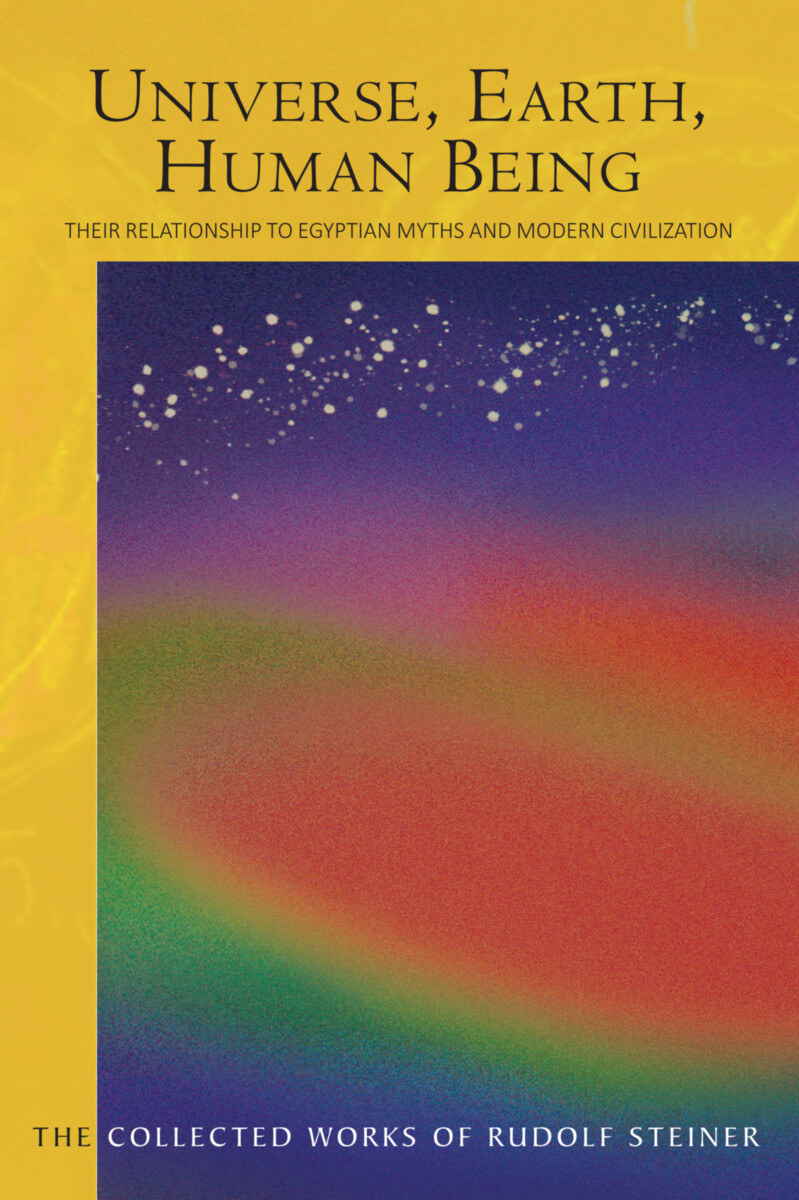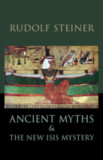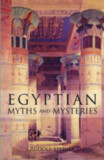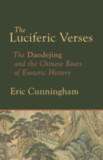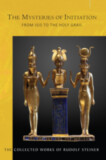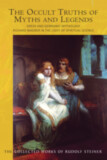Universe, Earth, Human Being
Their Relationship to Egyptian Myths and Modern Civilization (CW 105)
- Publisher
Rudolf Steiner Press - Published
31st January 2023 - ISBN 9781855846029
- Language English
- Pages 212 pp.
- Size 6" x 9.25"
11 lectures, Stuttgart, August 1908 (CW 105)
“The mission of our age is not to reproduce an ancient wisdom, but to engender a new one—a wisdom that points not only to the past but that works prophetically into the future.” — Rudolf Steiner
Beginning with ancient Egypt, the pyramids, and sphinxes—and a comparison of that time with our own—Rudolf Steiner surveys the vast spiritual landscape of human development. In symphonic style, he describes the conquest of the physical plane in post-Atlantean civilizations; the interrelationships of various cultural epochs; human connections with the kingdoms of nature and planetary bodies; and the relationship between animal forms and “the physiognomy of human passions.” Through this panoramic vision, we discover how the changed conditions of human consciousness call for a new spiritual understanding today.
In her Introduction, Marie Steiner describes the experience of being in the audience for this timeless series of lectures:
“Enormous cosmic pictures were unfolded before the spiritual gaze of the listeners; insights were of such depths of ancient wisdom, views of distant futures of human and world development, that deepest devotion flowed through their hearts.”
This new edition features a revised translation, introduction, notes and an index.
Universe, Earth, Human Being is a translation from German of Welt, Erde, Mensch, deren Wesen und Entwickelung sowie ihre Spiegelung in dem Zusammenhang zwischen ägyptischem Mythol und gegenwärtiger Kultur (GA 105). A previous edition was titled Universe, Earth, and Man (1987).
C O N T E N T S:
Introduction by Marie Steiner
1. The Egyptian Period and the Present Time
2. Ancient Wisdom and the New Apocalyptic Wisdom
3. The Kingdoms of Nature and Spirit Beings
4. The Outer Manifestations of Spiritual Beings in the Elements and Cosmic Stages of Evolution
5. Human Evolution in Relation to Cosmic Evolution
6. The Spirits of Form as Regents of Earthly Existence
7. Animal Forms as the Physiognomy of Human Passions
8. The Human Being’s Connection with the Various Planetary Bodies
9. Conquest of the Physical Plane in Post-Atlantean Civilizations
10. Changes in the Human Being’s Relationship with the World of Spirit
11. Relationships between the Cultural Epochs of Post-Atlantean Evolution
Notes
Index
Rudolf Steiner
Rudolf Steiner (b. Rudolf Joseph Lorenz Steiner, 1861–1925) was born in the small village of Kraljevec, Austro-Hungarian Empire (now in Croatia), where he grew up. As a young man, he lived in Weimar and Berlin, where he became a well-published scientific, literary, and philosophical scholar, known especially for his work with Goethe’s scientific writings. Steiner termed his spiritual philosophy anthroposophy, meaning “wisdom of the human being.” As an exceptionally developed seer, he based his work on direct knowledge and perception of spiritual dimensions. He initiated a modern, universal “spiritual science” that is accessible to anyone willing to exercise clear and unbiased thinking. From his spiritual investigations, Steiner provided suggestions for the renewal of numerous activities, including education (general and for special needs), agriculture, medicine, economics, architecture, science, philosophy, Christianity, and the arts. There are currently thousands of schools, clinics, farms, and initiatives in other fields that involve practical work based on the principles Steiner developed. His many published works feature his research into the spiritual nature of human beings, the evolution of the world and humanity, and methods for personal development. He wrote some thirty books and delivered more than six thousand lectures throughout much of Europe. In 1924, Steiner founded the General Anthroposophical Society, which today has branches around the world.


